Third annual Cyberinfrastructure Symposium hosted by RCAC
Last month, the Rosen Center for Advanced Computing (RCAC) successfully hosted its third annual cyberinfrastructure (CI) symposium. This year’s symposium focused on the role that high-performance computing (HPC), artificial intelligence (AI), and semiconductors play in scientific advancements both at Purdue and abroad. Michela Taufer, an AAAS Fellow and ACM distinguished scientist, delivered the keynote address, and the symposium was well attended by students, faculty, and industry representatives.
The day began with 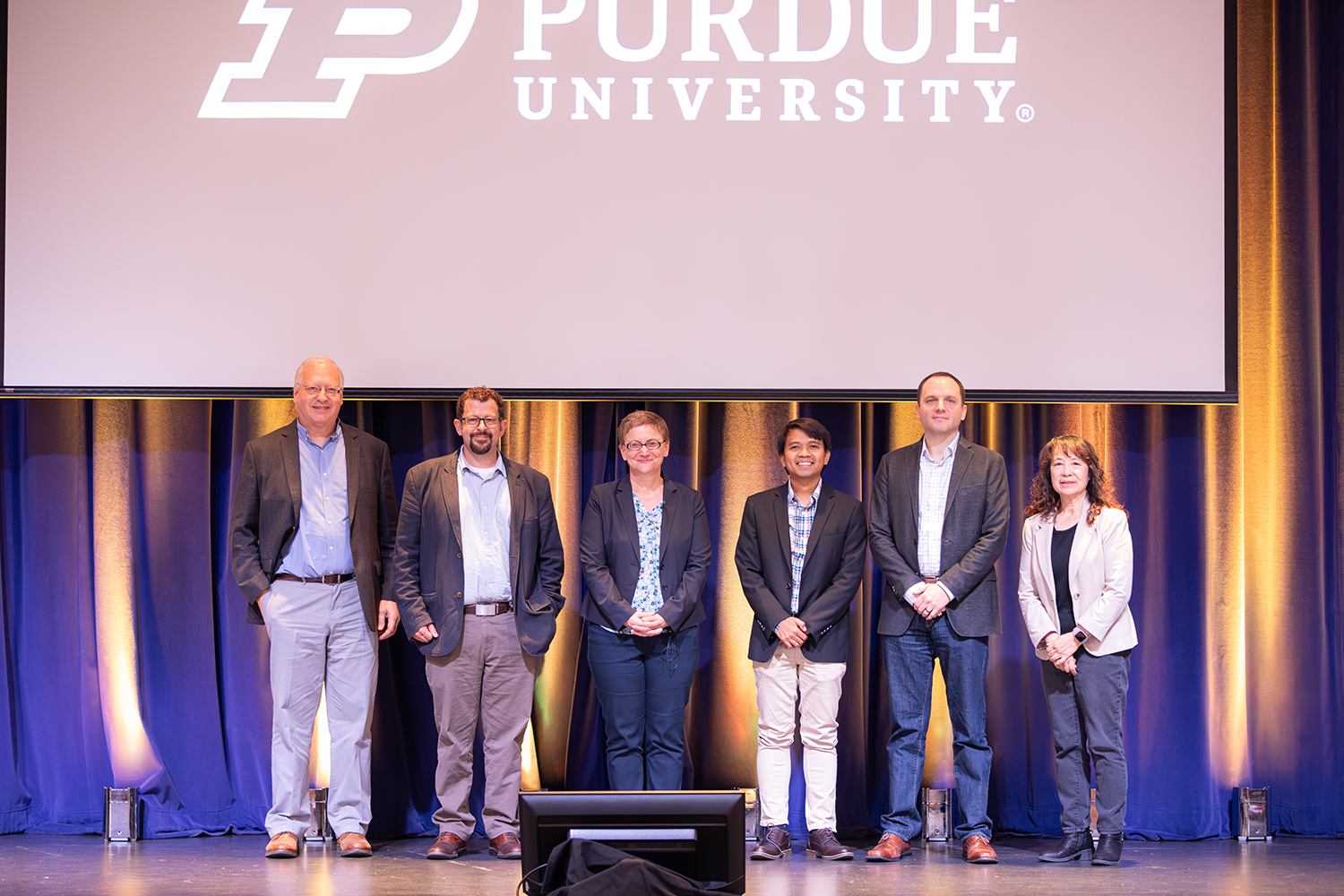 an opening presentation from Preston Smith, executive director of RCAC, who highlighted the state of Purdue’s campus cyberinfrastructure. This was followed by a presentation by Rizki Oktavian, an AI engineer and reactor physicist for Blue Wave AI Labs. Blue Wave AI Labs is one of the Anvil supercomputer Industry Partners. Oktavian’s presentation discussed how he utilizes Anvil to harness the power of AI in order to improve the safety and efficiency of the nuclear energy industry.
an opening presentation from Preston Smith, executive director of RCAC, who highlighted the state of Purdue’s campus cyberinfrastructure. This was followed by a presentation by Rizki Oktavian, an AI engineer and reactor physicist for Blue Wave AI Labs. Blue Wave AI Labs is one of the Anvil supercomputer Industry Partners. Oktavian’s presentation discussed how he utilizes Anvil to harness the power of AI in order to improve the safety and efficiency of the nuclear energy industry.
Next on the list of presenters was David Ryglicki, a Tropical Weather Expert/Senior AI/ML Engineer for MyRadar. MyRadar is another of Anvil’s Industry Partners. Ryglicki’s presentation was titled “Deep Generative Modeling of Satellite: Using Generative AI to Nowcast Synthetic, Multispectral Satellite Imagery.” He discussed how he and MyRadar use Anvil for AI-developed nowcasting—predicting weather conditions in the near future (15-60 minutes)—and how this new type of modeling can shift the paradigm of weather prediction. Karen Plaut, Executive Vice President for Research at Purdue, followed Ryglick’s presentation by highlighting the variety of ways in which HPC and AI are driving research and innovation across campus.
Keynote speaker Michela Taufer was next to take the stage. Her presentation, “On the Need for Solutions to Address Scientists’ Pain Points,” addressed the significant challenges scientists face across various domains, institutions, and generations in managing and utilizing large-scale data from experimental facilities, remote sensing, and simulations at major national laboratories. She also covered the difficulties researchers encounter when accessing and effectively using data crucial for scientific discovery, and demonstrated how a shared and accessible data fabric can support scientists in overcoming these challenges.
After Taufer delivered 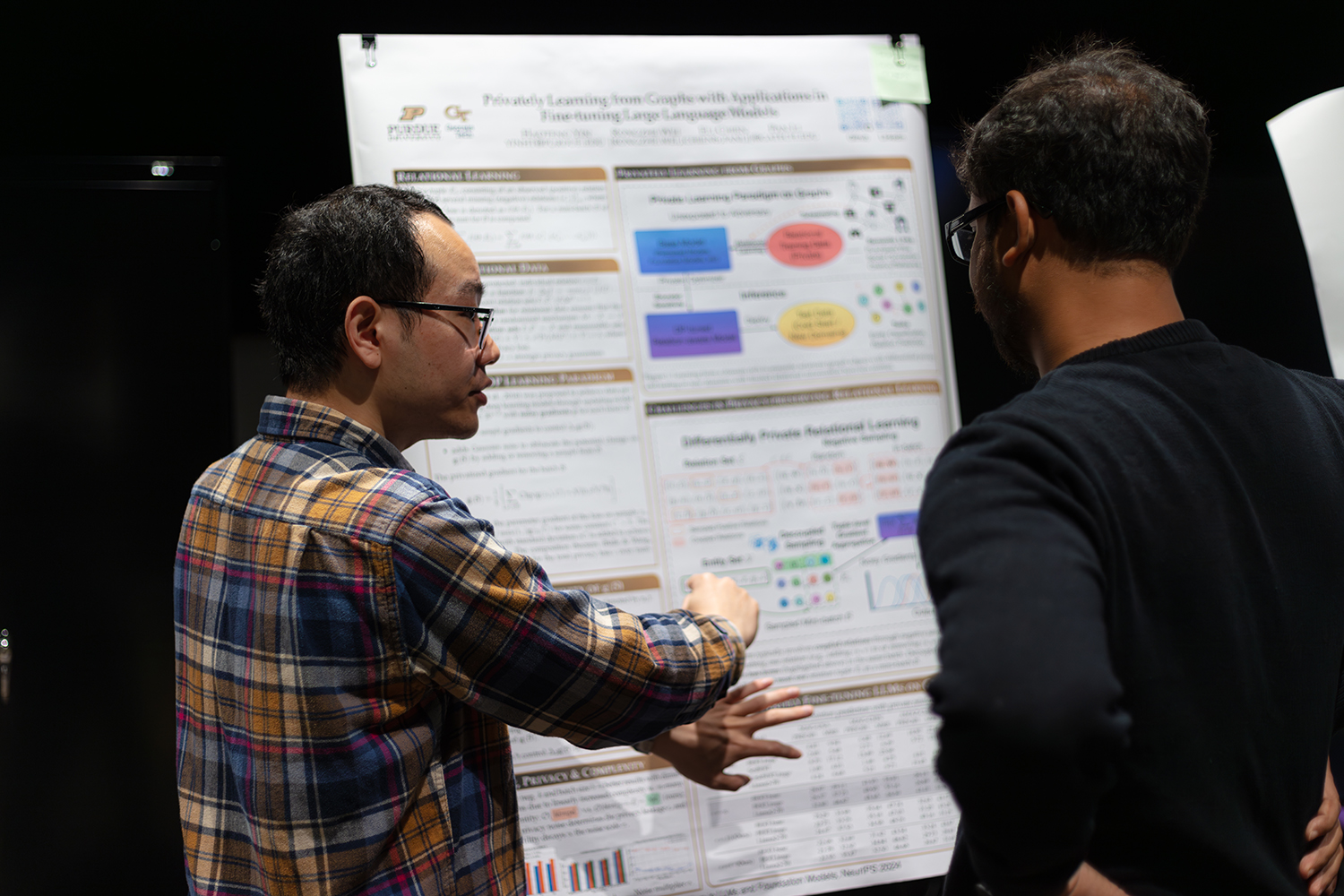 her address, the CI Symposium broke for lunch, during which a student poster session was held in the Envision Center. The winner of “Best Poster Award” was Haoteng Yin, a graduate student in the Department of Computer Science. His poster was titled “Privately Learning from Graphs with Applications in Fine-tuning Large Pretrained Models.” In his work, Yin and his partners looked into privacy concerns for relational data in AI models used in fields with sensitive documents or private information, such as finance and healthcare. The group developed a privacy-preserving relational learning pipeline that ensured differential privacy when using the model. Once completed, their work demonstrated significant improvements in relational learning tasks for the model, all while maintaining robust privacy guarantees during training.
her address, the CI Symposium broke for lunch, during which a student poster session was held in the Envision Center. The winner of “Best Poster Award” was Haoteng Yin, a graduate student in the Department of Computer Science. His poster was titled “Privately Learning from Graphs with Applications in Fine-tuning Large Pretrained Models.” In his work, Yin and his partners looked into privacy concerns for relational data in AI models used in fields with sensitive documents or private information, such as finance and healthcare. The group developed a privacy-preserving relational learning pipeline that ensured differential privacy when using the model. Once completed, their work demonstrated significant improvements in relational learning tasks for the model, all while maintaining robust privacy guarantees during training.
Following the poster session, the CI Symposium continued with six more presentations:
- Matteo Ruggeri, Aeronautical and Astronautical Engineering, Purdue University. Presentation title: “Multi-platform CFD and application to hypersonic flow.”
- Erica Carlson, Professor of Physics and Astronomy at Purdue University. Presentation title: “New Phases of Matter in Quantum Material.”
- Jeff Terstriep, Senior Program Manager, The National Center for Supercomputing Applications. Presentation title: “Accelerating Industrial Innovation: Collaborations Leveraging Cyberinfrastructure.”
- Eamon Duede, Assistant Professor of Philosophy at Purdue University, joint appointment Argonne National Laboratory. Presentation title: “Cyberinfrastructure Challenges for Unleashing Human-AI Teams for Scientific Discovery.”
- Nathaniel Husted, Chief Scientist for Cyber and Electromagnetic Warfare (EW) technologies at Naval Surface Warfare Center-Crane Division. Presentation title: “High-Performance Computing: A Cosmological Perspective.”
- Carol Song, Chief Scientist, Rosen Center for Advanced Computing at Purdue University. Presentation title: “Research Software Engineering (RSE) in the Cyberinfrastructure Ecosystem.”
The CI Symposium closed with a networking reception on the East Terrace of the Purdue Memorial Union, open to all presenters and attendees. Thanks to our sponsors, DDN and Pier Group, refreshments were provided free of charge. If you were unable to attend the 2024 CI Symposium, all presentations will soon be made available to watch on our Youtube channel.
To learn more about RCAC resources, contact rcac-help@purdue.edu.
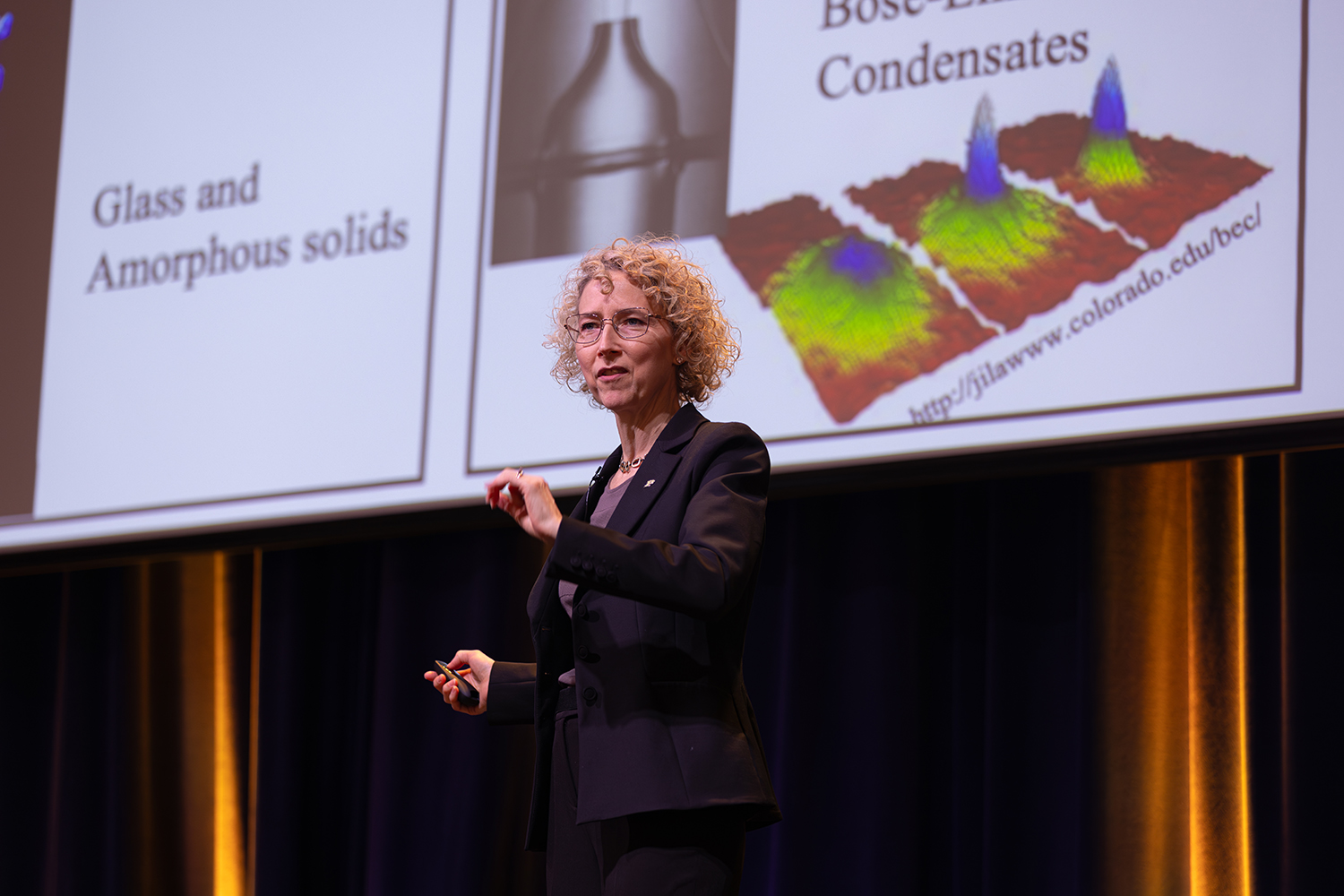
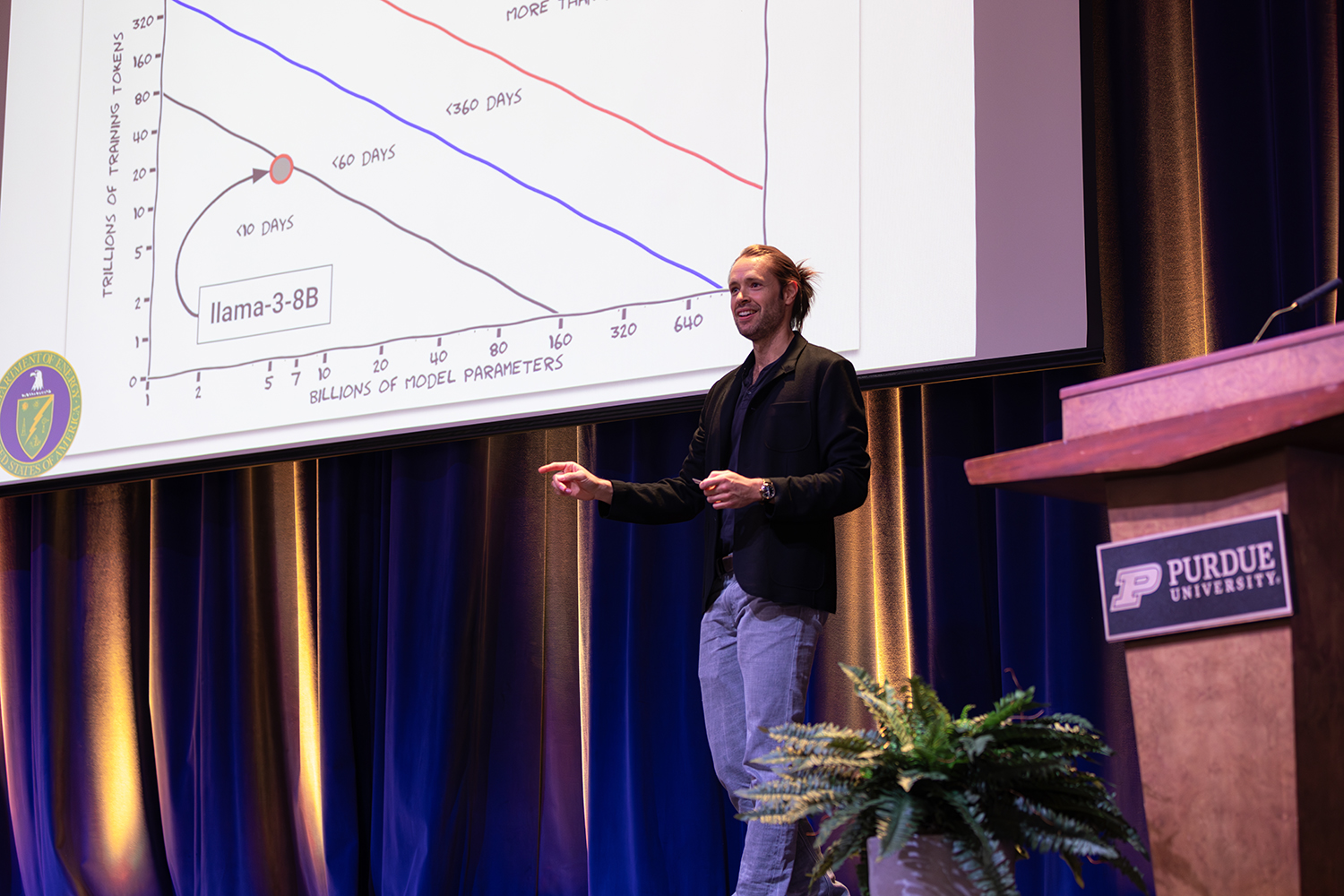
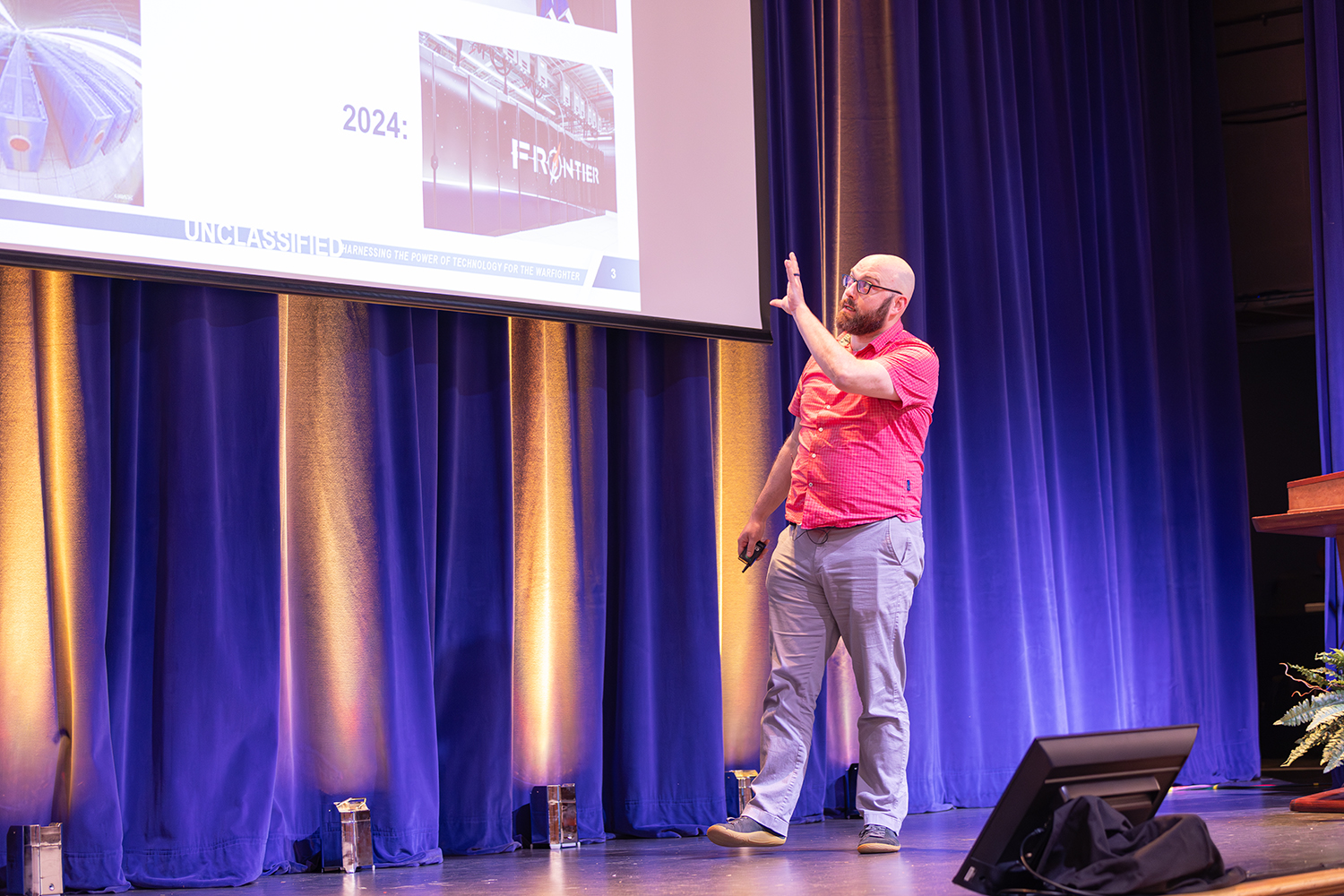
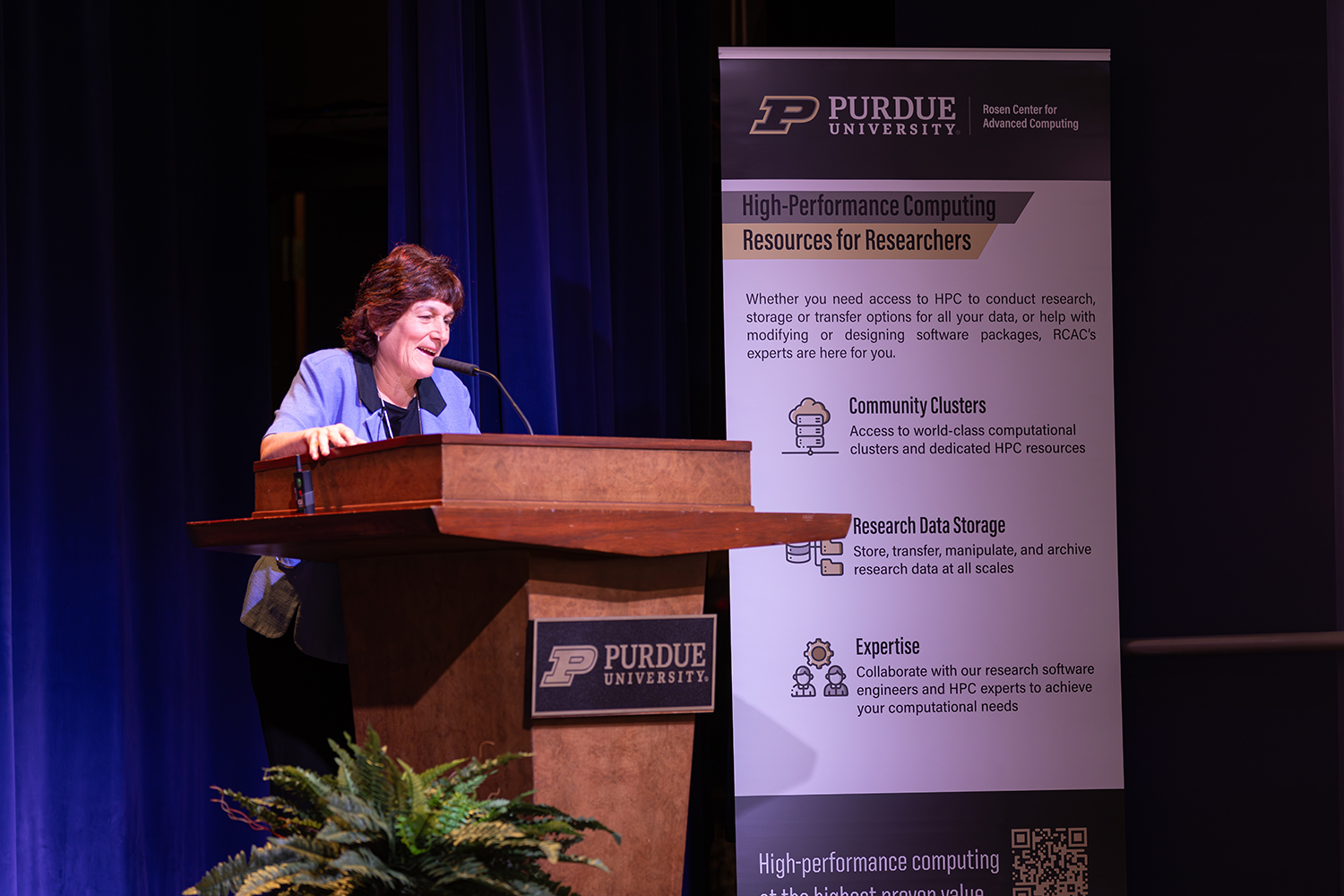
Written by: Jonathan Poole, poole43@purdue.edu
